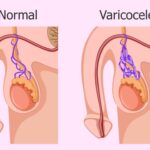
With global rates of male infertility treatment processes continuing to rise, a new study in spermatogonial stem cell research led by researchers at the University of Georgia does provide hope for future clinical therapies.
Globally, nearly one in seven heterosexual couples of reproductive age are affected by infertility. Infertility is often viewed as an issue that does affect women, but male factor infertility does contribute to approximately half of instances. Unfortunately, the burden of male infertility often goes unrecognized and its causes are poorly understood, implying men can be sidelined during treatment, and the burden of medically assisted reproductive techniques ends up falling on the woman, even if she has no reproductive issues. This lack of understanding and information does mean that substantial emotional stress is put on both members of the couple who are seeking infertility treatment.
Infertility is thus a disease of the reproductive system and makes a person unable to have children. It can affect a man, a woman, or both. Male infertility implies that a man has a problem with his reproductive system.
Much success has been attained on account of trusted experts in reproductive medicine as well as fertility treatments. Expertise and advanced technology in the field of fertility treatments have made patients feel reassured about their healthcare.

Fertility centers do proudly boast of high success rates—the IVF success rate for frozen embryo transfers and the success rate for couples undergoing the treatment. The latest techniques in fertility treatments, including in vitro fertilization (IVF), donor treatments, intrauterine insemination (IUI), pre-implantation genetic screening (PGS), endometrial receptivity analysis (ERA), and egg/sperm freezing or vitrification, coupled with the mission to provide evidence-based fertility treatments with compassion, have made such treatments very viable.
Men’s options can rather include treatment for general sexual problems or a lack of healthy sperm.
Understanding the HPG axis and the effect of estrogen excess is considered critical for the assessment and treatment of male infertility. However, the goal of infertility treatment in all such men is to optimize LH levels to stimulate T production from the Leydig cells, FSH levels to stimulate Sertoli cells, and also spermatogenesis, and eliminate any sort of estrogen excess. Pharmacologic therapy happens to be the only effective method for dealing with a handful of known causes of male infertility where the causes are relatively well-defined and understood.
Based on the present data, hormonal therapies on the whole should not be used indiscriminately for the treatment of idiopathic male infertility due to their questionable efficacy and restrictive cost.
Healthcare professionals have no doubt helped thousands of people begin or expand their respective families over the years. A compassionate team of experts has been able to try to find the cause of infertility and come up with a treatment plan that proves right for the couple, with no doubt success.









©2024. Andro9. All Rights Reserved.